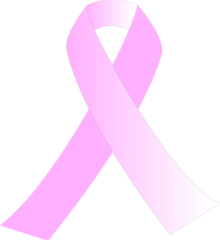Breast Cancer Screening Guidelines
 Breast cancer is the second most diagnosed cancer in women, affecting one in every eight women in the U.S. The goal of screening exams for early breast cancer detection is to identify breast abnormalities as early as possible. If breast cancer is found early, there are more treatment options and a better chance for survival. Women whose breast cancer is detected at an early stage have a 93 percent or higher survival rate in the first five years.
Breast cancer is the second most diagnosed cancer in women, affecting one in every eight women in the U.S. The goal of screening exams for early breast cancer detection is to identify breast abnormalities as early as possible. If breast cancer is found early, there are more treatment options and a better chance for survival. Women whose breast cancer is detected at an early stage have a 93 percent or higher survival rate in the first five years.
Most health care providers feel that early screening tests for breast cancer save thousands of lives each year, and that many more lives could be saved if even more women were screened.
A mammogram can find breast cancer before it can be felt. While it is the best screening tool we have, it is not perfect. When mammography is combined with clinical breast exams and breast self-exams, your chances for finding cancer are even greater. Getting checked regularly can put your mind at ease. Finding cancer early may also save your life.
Tools for Early Detection
The risk of breast cancer occurring is low for women in their 20s and gradually increases with age. No matter what age, however, women should promptly report any new breast changes to their health care provider.
The Carol Milgard Breast Center and TRA Medical Imaging advise women to get screening mammograms every year starting at age 40. Evidence has shown that women who skip a yearly mammogram may miss the opportunity for an early breast cancer diagnosis.
Women 40+
We recommend that women 40 years and older use the traditional three-fold approach to detect breast cancer early:
- Yearly screening mammograms
- Regular clinical breast exams by a health care provider
- Regular breast self-exams
Women At Risk
If a woman has been told she has a greater than average risk for developing breast cancer, she should discuss with her health care provider the potential benefits of a screening breast MRI in addition to her yearly mammogram. Talk to your health care provider about your risk factors and what screening options are best for you.
Screening Mammogram
A screening mammogram is a routine exam for women who have no sign or symptoms of breast disease. Digital mammography uses x-ray to make an image of the breast. A mammogram can identify breast abnormalities which help to find cancer at an early stage when it is small and easier to treat. Women do not need a written referral from a health care provider to have a screening mammogram at the Carol Milgard Breast Center; however, they do need to have a provider of record for the report to be sent to. See Digital Mammography for more details.
Breast Self-Exam
Learn about how to increase your breast self-awareness, signs not to ignore and the steps to perform a breast self-exam on our Breast Self-Exam page.
